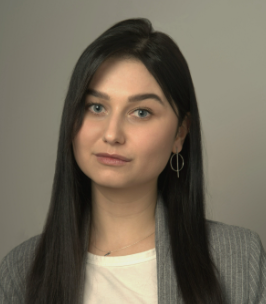7th September 2023
The humanitarian response to the earthquake in Türkiye and Syria had passed the six-month mark. To review the ongoing activities in the region and optimise the next phase of response, the HLA leadership team travelled to Gaziantep. Samantha Davis, Deputy Director for Learning and Programmes, and Pawel Mania, Deputy Director for Transformational Response, met with the HLA regional team, local partners, and colleagues from Save the Children’s Syria Response Office to follow up on the work done so far and discuss priorities and needs of the local actors to provide impactful and cohesive support.
From the observation of our team, both local and international NGOs are well-prepared to handle protracted crises; however, they encountered challenges in swiftly adapting to respond to new emerging needs following the earthquake.
Samantha Davis, Deputy Director for Learning and Programmes, shares:
“Distress emerged as a pressing priority during our visit, as the people in the region are grappling with the enduring impact of continuous shocks. Coping with this situation has been extremely challenging. While we were there, a smaller earthquake struck, triggering further distress. Heart-wrenching stories were shared, recounting the loss of colleagues, family, and friends who tragically lost their lives in the earthquake. These deeply personal accounts highlighted the immense impact of such disasters on the lives of people in the area. It underscored the critical need for immediate and effective support and resources to help them cope with the adverse experiences they have endured.”
During the meetings the importance of enhancing the capacity of local partners was emphasised consistently, and several priorities where our assistance is needed the most were identified. Some organisations expressed the need for specific expertise, such as short-term support in shaping their organisational strategy and advisory assistance in developing new programmes. The consensus among these organisations was that targeted and specialised support in upskilling critical aspects of their work would be exceedingly valuable and beneficial in amplifying their ability to tackle the challenges they face.
Bdour Ghousheh, HLA Regional Lead for the MENAEE region, highlights:
“As getting funds remains one of the main challenges of local organisations, access issues in Syria create gaps in coordination between activities of Türkiye and Syria-based actors. Smaller organisations also sometimes find themselves left out from capacity strengthening activities. That is why the HLA’s work, and our Engine 2 approach are important for this response. Our plans are based on the needs of local organisations and are tailored to the context. For example, our team is now delivering Education in Emergencies (EiE) training for Syrian organisations in Arabic, to make sure the language is not a barrier to gain essential knowledge and skills.”
Read about the EiE training in Gaziantep here https://www.humanitarianleadershipacademy.org/news/to-give-hope-and-foster-stability-education-in-emergencies-fundamentals-training-in-turkiye-and-syria/
Some of the individuals we spoke expressed a deep concern regarding the UN Security Council’s decision not to renew the UN’s mandate to operate cross-border into Northwest Syria through the Bab Al-Hawa border crossing. As this crossing is crucial in securing aid for Syrians in opposition-held areas of NW Syria, its non-renewal raised uncertainties about the accessibility of humanitarian support to the area. [It was later reported that deal had been reached with the Government of Syria to allow the UN’s access through Bab al-Hawa for a period of three months. We observed a strong striving for innovative solutions to overcome the obstacles in delivering humanitarian support to the region. Our interlocutors indicated the need for more robust coordination mechanisms to be introduced for organisations to convene and advocate and to work together more effectively.
Pawel Mania, Deputy Director for Transformational Response reflects:
“The earthquake has been a traumatic experience for the whole region, and everyone was impacted in one way or another. However, in the case of Syrian-led organisations, this is another trauma added to their complex and difficult reality. It feels like this reassures the role of the HLA in the region as a team that advocates for a more holistic and systemic approach that strengthens the overall capacity of the organisations and influences dialogue between different stakeholders. Reflecting on the visit and communication with our regional team and local responders, we also see that HLA should identify and reinforce potential collaboration between different communities and networks. We are going to continue our engagement efforts on both sides and be more opportunistic with some of the priorities that are being shared. For the HLA, it is particularly important to engage directly with networks like Syrian Network League and Turkish Humanitarian Forum to ensure we are led by local experts and can reach a wider audience.
One of the goals of the visit was to strengthen our relations with Save the Children International Syria Response Office. After having a meeting, both teams expressed an interest in close collaboration. The focus of this synergy would be to develop internal staff capacity and address critical challenges that we have encountered in our work. This presents an exciting opportunity to enhance our collective impact in the region.
During the visit our team also had a number of meetings to reconnoiter new potential partnerships with local and international organisations to expand our impact in the region. Exploring and solidifying these connections, we are going to map out potential collaboration models and identify opportunities to pilot new initiatives and expand on our existing projects to be more impactful.
Learn more about our work in the region:
Middle East & North Africa – Humanitarian Leadership Academy
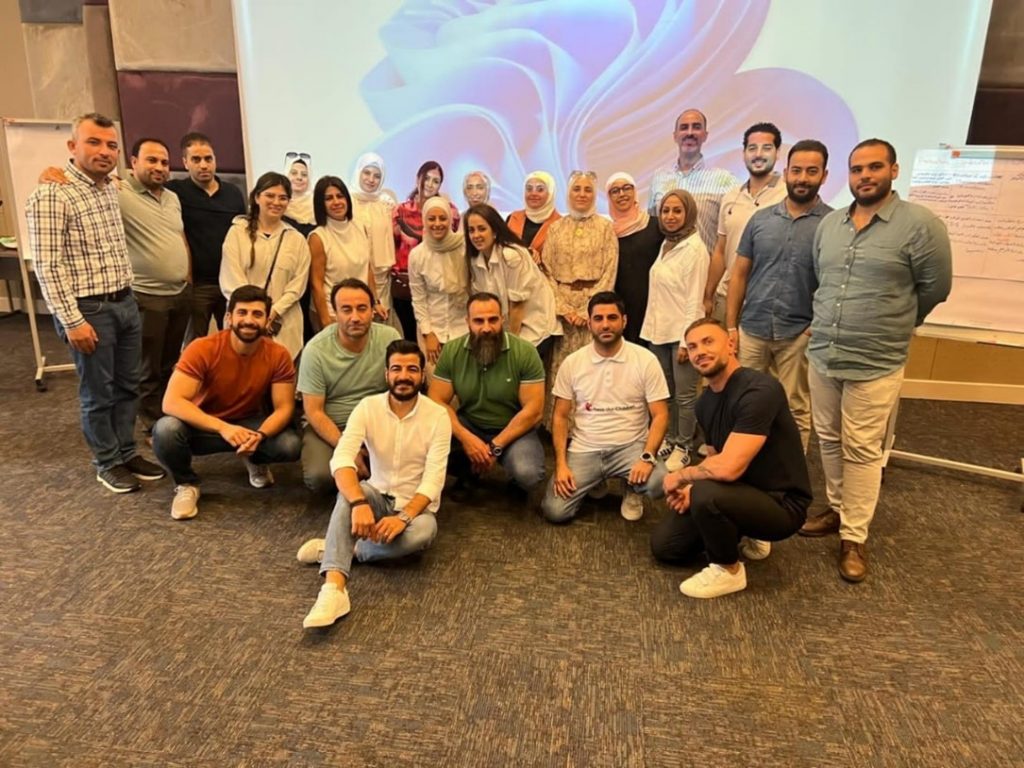
Related News
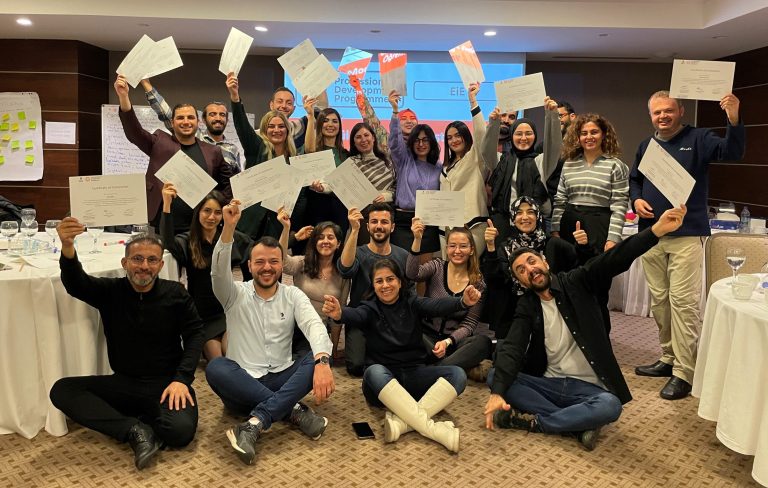
Our recent trainings in Türkiye: committing to localisation and holistic approach
28th February 2024
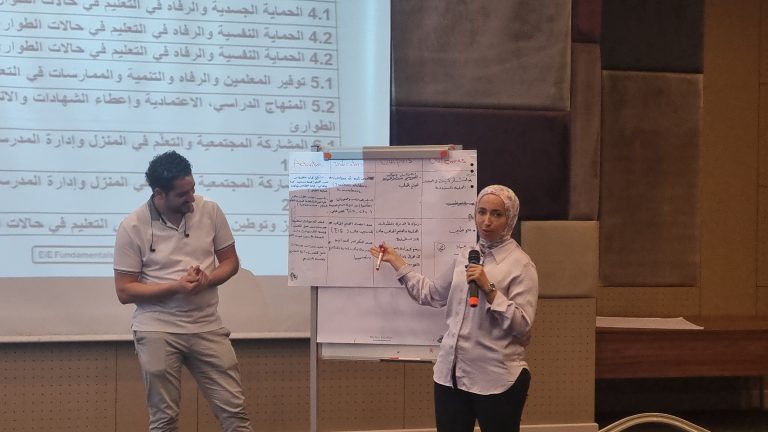
To Give Hope and Foster Stability: Education in Emergencies Fundamentals Training in Türkiye and Syria
1st September 2023
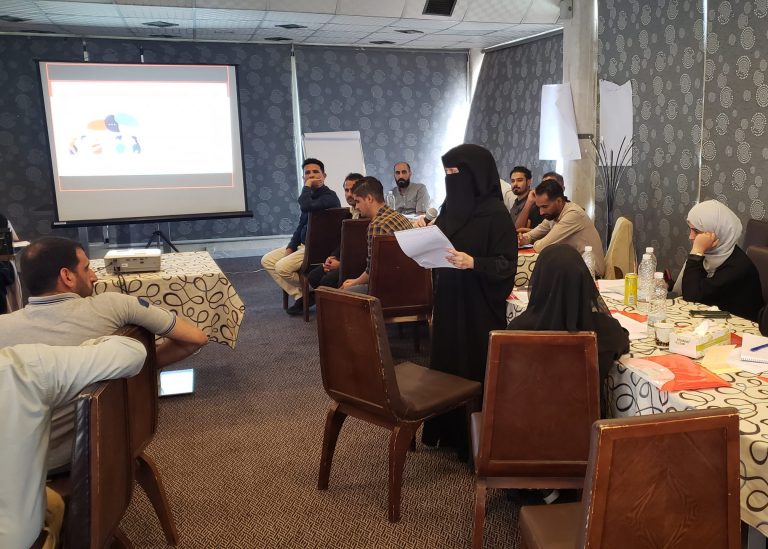
Training of Facilitators: bolstering organisational development in Yemen
21st July 2023
